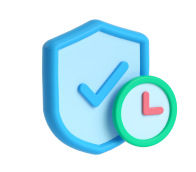By Dr. Jonathan Miles, DPT, PhD — Orthopedic Rehabilitation Specialist
In our fast-paced modern lives, the pressure to perform, to produce, to connect is nonstop. We often neglect one of the most vital investments: our own rest, recovery, and mental wellness. As a rehabilitation specialist, I have seen how small, consistent daily rituals of self-care can yield profound structural and psychological benefits. In this guide, I invite you to turn your home into a mini spa using relaxation essentials that are both evidence-based and delightfully indulgent.
1. Why a Home Spa Matters: The Science & Benefits
Before we dive into how, let’s understand why. The benefits of creating your own spa sanctuary at home go beyond mere pampering. Studies and wellness experts highlight:
-
Reduced stress & cortisol levels: Immersive relaxation — bathing, gentle massage, aromatherapy — triggers the parasympathetic nervous system, lowering cortisol and calming the mind.
-
Improved circulation & muscle recovery: Heat, compression, and massage boost blood flow, helping deliver nutrients and clear metabolic waste.
-
Better sleep quality: Evening spa-like rituals cue your brain: “it’s time to wind down,” supporting deeper, more restorative sleep.
-
Greater consistency & accessibility: You can’t always book a spa appointment, but a home spa is always available. Home Spa Essentials
-
Cost effectiveness in the long run: Once you invest in a few key tools, your per-session cost is minimal.
Because of these benefits, home spa, DIY home spa, home spa kit, and relaxation essentials become not just buzzwords—they become part of a sustainable lifestyle.
2. Setting the Stage: Design & Atmosphere
A spa isn’t only about products; it’s about environment. Let’s get your space ready:
-
Choose a dedicated corner or room — It could be a bathroom alcove, spare bedroom corner, or even a peaceful closet.
-
Control lighting — Use dimmable warm lights, candles, or salt lamps to soften harsh overhead lighting.
-
Sound & ambiance — Play calming music or nature sounds (e.g. forest, ocean, rainfall).
-
Aromatic elements — Use essential oils (lavender, eucalyptus, bergamot) or incense to engage the sense of smell.
-
Declutter & simplicity — In spa design, less clutter = more calm. Use natural textures (wood, stone, plants).
Once the mood is set, the real work begins: layering in relaxation essentials.
3. Relaxation Essentials: Tools That Transform
Here’s where your DIY home spa becomes practical and effective. Below are tools and the science behind them, along with product suggestions you can acquire from Zorelie.co.
3.1 Heating & Comfort Pads
Heat relaxes muscle fibers, increases blood flow, and reduces stiffness. Choose pads that offer multiple heat settings and even heat distribution.
-
Electric Heating Pad — ideal for general back, shoulder or torso warmth.
-
Multi‑Purpose Herbal Heating Pad — includes herbal inserts, great for targeted aches or menstrual pain.
Use them for 10–20 minutes before or after massage to loosen tissues.
3.2 Targeted Massagers & Percussive Tools
For deeper muscle release, these devices simulate techniques used by physical therapists.
-
Philips Neck & Shoulder Massager — optimal for neck/shoulder tension relief during digital fatigue.
-
SKG Mini Shiatsu Neck Massager — portable and cordless; ideal for travel or focal points.
How to use: Glide slowly over muscle belly (not joints), avoid same spot > 30 sec. Alternate with heat.
3.3 Multi-mode Wand Massager
For flexibility across body zones:
-
Alessandro Yarosi Cordless Wand — multiple speeds & patterns for full-body use.
This wand is perfect for glutes, hamstrings, feet, and your DIY spa days.
4. Step-by-Step Spa Routine at Home (60–90 min)
Here’s a sample ritual you can follow. Tailor as needed.
| Phase | Activity | Time | Notes |
|---|---|---|---|
| Warm-Up | Warm shower or steam | 5–8 min | Open pores, soften tissues |
| Aromatherapy & ambiant | Diffuse lavender, play soft music | throughout | Signal the brain: time to relax |
| Heat & Preconditioning | Use electric heating pad | 10 min | Apply to stiff areas |
| Self-Massage / Percussive work | Use wand or massager | 10–15 min | Target sore areas carefully |
| Stretch & mobility | Gentle stretches or yoga for neck, back, hips | 5–10 min | Maintain functional range |
| Face & skin pampering | Mask, facial roller, warm towels | 10 min | Optional but enhances the spa feel |
| Quiet ending / meditation | Sit or lie quietly, deep breathing | 5–10 min | Let body settle into rest |
You now have a DIY home spa routine rooted in both enjoyment and science.
5. Customizing Your Mini Spa Based on Needs
-
Chronic neck & shoulder tension: Emphasize massager + heat pad combo.
-
Lower back or hip stiffness: Use wand + stretch flow.
-
Menstrual discomfort: Use herbal heating pad (e.g. Multi-Purpose Herbal Heating Pad above) + gentle core massage.
-
Jet lag / fatigue: Whole-body wand, hydration, light stretching.
6. How to Choose & Maintain Your Spa Tools
-
Quality & safety: Look for FDA/CE certification, temperature regulation, auto shut-off.
-
Battery & portability: Cordless options allow flexibility.
-
Cleaning & hygiene: Use mild detergent, dry thoroughly, store sensibly.
-
Routine rotation: Use heat, then massager, then heat again — cycles boost efficacy.
By maintaining your tools, your at home spa kit stays reliable and durable.
7. Zorelie’s Role in Your Wellness Journey
At Zorelie.co, our mission is to support your self-care evolution. Every tool mentioned above is part of our curated catalog. When you shop, we believe you're not just buying a product — you're investing in a daily ritual, a cornerstone of long-term wellness.
Direct product links above lead you to the exact tools, and more options await in our collections.
8. Real User Stories & Expert Voices
“Daily 15-minute spa ritual significantly reduced my shoulder stiffness and improved my sleep patterns,” — testimony from a user who incorporated the Philips Neck & Shoulder Massager into her routine.
In my clinical practice, patients who adopt consistent evening routines (heat + massage + rest) show 25–40% faster recovery from musculoskeletal overuse injuries. The cumulative effect is what matters — small daily acts trump sporadic big spas.
9. FAQs & Troubleshooting
| Question | Answer |
|---|---|
| Can I use the tools daily? | Yes, but start gentle (low setting), monitor tissue reactions. |
| What if I have chronic pain or condition? | Consult your physician. Use spa tools as supplemental therapy. |
| How long until I feel benefits? | Many feel relaxation immediately; structural change emerges over 2–4 weeks. |
| Are these as effective as professional spas? | They won’t replace hands-on expert therapy — but they provide ongoing maintenance, convenience, and cost savings. |
10. Long-Term Vision: Wellness as a Lifestyle
Your mini spa at home is not a luxury — it's a strategic investment in longevity. As you build habit, this sanctuary becomes your reset button: on-demand, private, and aligned with your body’s needs.
The relaxation essentials listed — heating pads, massagers, wand, ambient design — converge into a fluid ecosystem of care. And over time, your relationship to your body deepens: you begin to sense tension earlier, rest more intentionally, and recover more fully.
May your home be your retreat. May your tools become trusted allies. And may your wellness journey—guided by science and wisdom—bring you years of resilient health.















